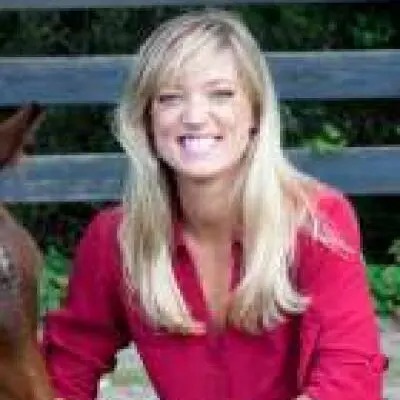Equine Ticks, Lyme Disease, and Other Tick-Borne Infections
Species
Equine
Contact Hours
15 Hours - RACE Approval Pending
Language
English
Discipline
Internal Medicine – Endocrinology, Haematology, Infectious Diseases, Parasitology & Oncology
Veterinary Partner
Equine



Recorded: February 2024
| Speaker | Discussant | Title | Duration |
| Susan Little
| Thomas Divers
| Equine Ticks of the Americas – Biology, Habitat & Seasonality | 120 min |
| Lidia Chitimia-Dobler
| Susan Little
| Equine Ticks of Europe and Beyond – Biology, Habitat & Seasonality | 120 min |
| Angela Pelzel-McCluskey | Sally DeNotta
| Equine Piroplasmosis | 120 min |
| Thomas Divers
| Reinhard Straubinger | Borreliosis , Anaplasmosis & Other Bacterial Tick-Borne Infections | 120 min |
| Denise Bonilla
| Sally DeNotta & José Reck Jr | Equine Tick Control – Challenges & Opportunities | 120 min |
| Jessika-Maximiliane Cavalleri | Vince Gerber | The Silent Threat: Tick-Borne Encephalitis Virus in Horses | 120 min |
| Panel Discussion | Lyme Disease – Clinical Signs, Diagnosis, Differential Diagnoses, Treatments & Prevention | 180 min |
ONLINE LECTURE SERIES CONTENT
Tick populations are increasing worldwide, creating a growing challenge for horse owners and veterinarians alike. Many ticks also transmit infectious agents that can result in the development of serious equine diseases. Limited options for acaricides that are safe and effective for horses further complicate tick control efforts. To protect equine health against the growing threat of ticks and tick-borne infections, veterinarians need to have a thorough understanding of the risk of infestation and infection in their region, recognize cases of tick-borne disease when they present and be knowledgeable of current treatment recommendations, and be able to advise owners about strategies for limiting ticks on horses.
This Lecture Series of interactive online lectures and case-discussions is aimed at practicing equine veterinarians and approaches equine ticks and tick-borne infections via an intentional combination of case-based descriptions and supporting didactic content. A curated team of international experts from around the world will be sharing their insights, with highly experienced, specialist equine clinicians adding their input and making comments during the lectures. Each Module will consist of an interactive lecture followed by discussion of cases jointly presented by the clinician and infectious disease expert or entomologist.
The following key topics of clinical relevance will be covered via separate in-depth, interactive discussion-based modules: Biology, habitat, and seasonality of important equine ticks worldwide; nuances of various equine tick-borne infections, including piroplasmosis, borreliosis, anaplasmosis, and tick-borne encephalitis; and challenges and opportunities for equine tick control.
Attending veterinarians are encouraged to ask questions, share their experiences, and describe their own challenging clinical cases as part of this lecture series.
Interactive Learning with Extensive Case Discussions
Each module comprises a comprehensive lecture followed by extensive case discussions. You'll have the opportunity to actively participate by asking questions, sharing comments, and exchanging tips & tricks with fellow attendees. We foster a dynamic learning environment where your engagement is encouraged and much valued.
Engage, Learn, and Elevate Your Equine Practice!
For the past 6.5 years, Denise Bonilla has served as the USDA APHIS Strategy and Policy, National Cattle Fever Tick Eradication Program Coordinator and a Veterinary Services Entomologist in Fort Collins, Colorado. She holds a M.S. In Environmental Science and Policy Management from University of California, Berkeley, a M.S. in Biology from Georgia Southern University, and a B.S. in Entomology from the University of Florida. Her background is in Medical and Veterinary Entomology. She has worked with lice, mosquitoes, bed bugs, and specializes in ticks and tick-borne disease ecology. She is also a Veterinary Services subject matter expert for Cattle Fever Ticks, New World Screwworm, and the Asian longhorned tick.
More InfoJessika M. Cavalleri, is an experienced internist and clinical researcher, she is a professor at the University of Veterinary Medicine Vienna . The internationally recognized specialist veterinarian studied veterinary medicine at the Freie Universität Berlin and, after completing her doctorate, switched to the Vetsuisse Faculty in Zurich. After her internship at the Equine Clinic, Cavalleri also started her residency in Switzerland , the post-academic training to become a diplomat at the European College of Equine Internal Medicine (ECEIM). Born in Dortmund, she completed her international specialist training as a veterinarian at the University of Veterinary Medicine in Hanover. There she worked until 2010 as a clinical researcher in the department for internal medicine at the equine clinic and later as a university lecturer. In 2016, Cavalleri habilitated in her specialty at the University of Veterinary Medicine in Hanover.
More InfoDr Lidia Chitimia-Dobler is a parasitologist at the Bundeswehr Institute of Microbiology, Munich, Germany with expertise on ticks. Her specific interests include morphology and genetics of ticks and prevalence of ticks with tick-borne pathogens specifically in German and African ticks, as well as in exotic imported ticks into Germany. Moreover, she is a world re-known specialist in the identification of fossil ticks from Burmese amber, which is relevant for the understanding of tick origin and evolution. Her research on a better understanding of tick diversity will lead to a better understanding on drivers for changes on the interaction of tick-host-environment and transmission of tick-borne pathogens. She has years of experience in fieldwork, collecting ticks from vegetation and wild and farm animals. Her main research interest on tick-borne diseases (especially tick-borne encephalitis and Rickettsia spp.) is in the field of epidemiology in a one health context.
More InfoSally DeNotta is board-certified by the American College of Veterinary Internal Medicine and is a member of the clinical faculty at the University of Florida College of Veterinary Medicine. Originally from the rural Oregon coast, she spent time in private practice in Oregon and Colorado before completing an internal medicine residency and PhD at Cornell University.
She joined the UF faculty in 2018, where her clinical interests include equine infectious disease and clinical neurology. When not in the hospital, she is the UF equine veterinary extension specialist, acting as the liaison between the College of Veterinary Medicine and the Florida horse industry.
She also currently serves as the Chair of the AAEP Infectious Disease Committee.
More InfoDr. Thomas J. Divers earned his DVM from the University of Georgia in 1975 and completed an internship in large animal medicine at the University of California at Davis. Dr. Divers returned to the University of Georgia for a residency in large animal internal medicine and ambulatory practice followed by 2 years as an assistant professor in the large animal medicine and ambulatory practice at the College. Dr. Divers then moved to the University of Pennsylvania for 10 years where he was an associate professor of large animal medicine and served as chief of the section of medicine at the New Bolton Center, University of Pennsylvania. In 1990 Dr. Divers moved to Cornell University where he is the Rudolph J. and Katharine L. Steffen Professor of Medicine in the Section of Large Animal Medicine. He is a diplomat of both the American College of Veterinary Internal Medicine and of the American College of Veterinary Emergency and Critical Care. Dr. Divers retired recently but still consults on cases, conducts research projects and provides lectures to veterinarians and students. He has been the recipient of teaching awards at four universities and has received the Educator of the Year Award from both the AAEP and ACVECC.
More InfoVince Gerber studied veterinary medicine at the University of Bern, Switzerland. He earned a doctor’s degree in 1995 and obtained the title of Equine Specialist (Equine Practice Boards of the Swiss Veterinary Association) in 1998 after working at the Swiss National Stud in Avenches and the Equine Clinic of the Vetsuisse Faculty of the University of Bern. Following this, he did research work and further training at Michigan State University (USA), first as a recipient of a scholarship by the Swiss National Science Foundation, followed by a residency. Vince earned his PhD title in the USA and passed the American Boards in Large Animal Internal Medicine in 2003. After his return to the University of Bern, he earned his habilitation in 2005 and became a Diplomate of the European College of Equine Internal Medicine. In 2011, he was appointed Professor and Head of the Swiss Institute of Equine Medicine (ISME). He has held several positions in national and international associations, such as past-President of the World equine Veterinary Association and his research interests include equine asthma and other hypersensitivities; dermatological conditions (pastern dermatitis, sarcoid), endocrinologic disorders, stress in sport horses and hereditary diseases.
More InfoLutz Goehring graduated as DVM from Utrecht University, the Netherlands. He is a board-certified specialist in veterinary internal medicine (large animal) of the American (ACVIM) and of the European College (ECEIM) equine internal medicine. In 2021 Dr. Lutz Goehring was named the Warren Wright, Sr.—Lucille Wright Markey Endowed Chair in Equine Infectious Diseases at the University of Kentucky's Gluck Equine Research Center.
More InfoOne of only five veterinarians in the world to be board-certified in both large animal internal medicine and neurology, and one of only two veterinarians practicing large animal neurology in the United States, Dr. Johnson has been a clinician at New Bolton Center since 2007 and was appointed to the faculty as assistant professor of large animal internal medicine and neurology in 2011.
As a neurologist, Dr. Johnson focuses on the diagnosis and treatment of diseases affecting the nervous system such as cervical vertebral (neck ) problems, also known as Wobbler syndrome, equine protozoal myeloencephalitis (EPM), and neurologic Lyme disease (neuroborreliosis).
Dr. Johnson received her veterinary degree from Cornell University, where she also completed a residency and became board-certified in large animal internal medicine in 2007. After joining New Bolton Center as a lecturer in 2007, she completed a second residency in neurology at the University of Pennsylvania, becoming board-certified in neurology in 2011.
More InfoJosé Reck holds a degree in Veterinary Medicine from the Universidade Federal do Rio Grande do Sul (UFRGS). He has also completed master's and doctoral degrees in Cell and Molecular Biology at UFRGS, focusing on ticks and tick-borne diseases. Since 2011, he has been a researcher at the Parasitology Laboratory of the Instituto de Pesquisas Veterinárias Desidério Finamor (IPVDF), which serves as the reference laboratory for the State Department of Agriculture of Rio Grande do Sul, Brazil. He is actively involved in diagnostic and research activities related to parasitic diseases in animals. Dr. Reck has coordinated research projects approved by funding agencies and private companies, with a particular emphasis on the eco-epidemiology of ticks and vector-borne diseases. He is a member of the Working Group on Tick Control and Acaricide Resistance of the "Colégio Brasileiro de Parasitologia Veterinária (CBPV)". As a professor at the Graduate School in Animal Health of IPVDF, he has supervised several master's dissertations.
More InfoSusan Little, is Regents Professor and the Krull-Ewing Professor in Veterinary Parasitology at the Center for Veterinary Health Sciences, Oklahoma State University where she is active in veterinary parasitology teaching and oversees a research program that focuses on zoonotic parasites, ticks, and tick-borne diseases. Dr. Little earned a BS in Biology from Cornell University, a DVM from Virginia Tech, and a PhD in veterinary parasitology from the University of Georgia. She is a diplomate in parasitology through the American College of Veterinary Microbiologists, past-president of both the American Association of Veterinary Parasitologists and the Companion Animal Parasite Council, and currently serves as co-Director of the National Center for Veterinary Parasitology. Dr. Little is an outstanding teacher and has received two excellence in teaching awards from the national Student American Veterinary Medical Association. In 2017 Dr. Little received the Distinguished Veterinary Parasitologist Award from the American Association of Veterinary Parasitologists.
More InfoDr. Angela Pelzel-McCluskey is the National Equine Epidemiologist for the United States Department of Agriculture (USDA), Animal and Plant Health Inspection Service (APHIS), Veterinary Services and is based in Fort Collins, Colorado. She obtained her Doctorate in Veterinary Medicine in 2001 from Texas A&M University. Dr. Pelzel-McCluskey was in equine private veterinary practice in both Texas and Colorado and has served as an epidemiologist with state and federal animal health agencies since 2004. Her international work includes training veterinarians in epidemiology and animal disease outbreak response techniques in western Africa, Central America, and the Middle East. In 2016, she was the recipient of the United States Animal Health Association's Federal Partnership award in recognition of her years of collaboration with states, academia, laboratories, and the equine industry. Dr. Pelzel-McCluskey completed her Masters of Science degree in Veterinary Immunology and Infectious Disease from Washington State University in 2017 and received Texas A&M University's College of Veterinary Medicine Outstanding Aluma award in 2022. Dr. Pelzel-McCluskey currently oversees the federal response to reportable equine disease outbreaks nationwide and has been the lead epidemiologist for more than 30 state, regional, and national disease outbreak responses during her combined state and federal service.
More InfoBio to follow.
More InfoEric Lockwood Swinebroad, DVM, Dipl.ACVIM, operates Newmarket/Indialantic Equine, a sport horse practice based in New Hampshire and serving clients throughout New England, New Jersey, Pennsylvania, and Florida.
He is a co-author of the American College of Veterinary Internal Medicine consensus statement “Borrelia burgdorferi Infection and Lyme Disease in North American Horses.
More InfoQualified Vet
Online Lecture Series
USD 715.00
Intern/Resident/PhD (Requires proof of status)
Online Lecture Series
USD 535.00
Vet Nurse/Vet Tech (Requires proof of status)
Online Lecture Series
USD 535.00
Veterinary Student (Requires proof of status)
Online Lecture Series
USD 145.00
If the options you are looking for are unavailable, please contact us.
No tax will be added unless you are a UK taxpayer
Choose currency at checkout



























